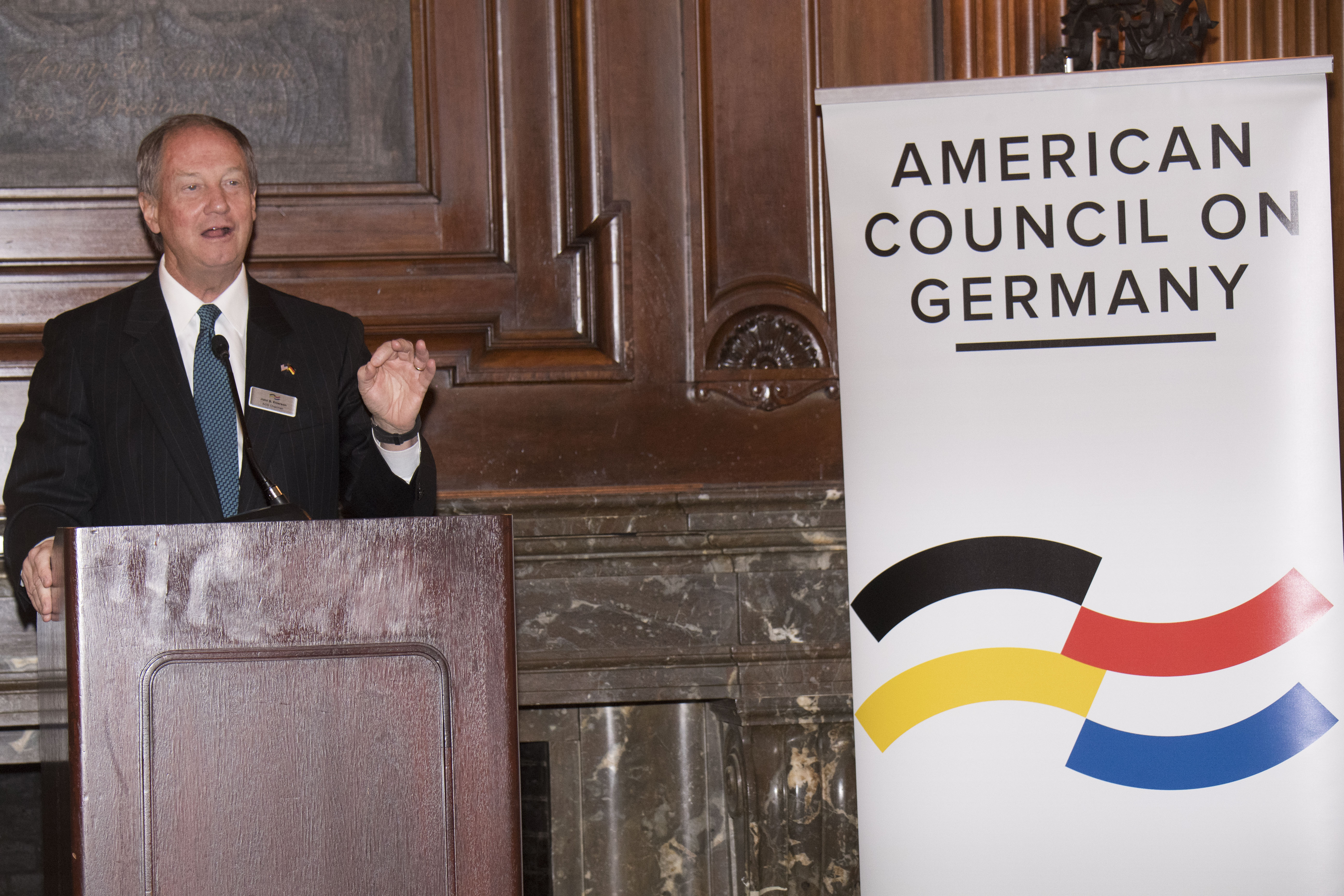Ambassador John B. Emerson was elected as Chairman of the American Council on Germany on January 17, 2018.
 Q: What first made you become interested in Germany?
Q: What first made you become interested in Germany?
A: My grandmother was born in the U.S. to German immigrants. German was her first language, and she often spoke it with my dad. I mentioned in my confirmation hearing that I studied German starting in seventh grade because I wanted to know what they were talking about. Actually, it was also because I was interested in science, and my parents and grandmother were clear that German was the language of scientific research. As I got older, I also was fascinated, and troubled, by how such a civilized and educated society could have permitted the rise of National Socialism—and the atrocities that brought about. This, I know, is a question many Germans wrestle with as well. And I am gratified by how well Germany has faced its history—something most other European nations could stand to emulate.
Q: What is the most significant challenge in transatlantic relations, and how can it be addressed effectively?
A: The moves toward economic nationalism on both sides of the Atlantic, and the corresponding diminution of trust in our multilateral institutions as well as government, the media, and the business world. We need to both recognize and embrace globalization, advances in technology, and our increasingly interconnected world; but at the same time we need to recognize that there are people who are being left behind by these rapid changes, and develop policies that better create opportunities for them as well.
Q: How did you get involved in the ACG?
A: I was selected by the ACG to participate in an exchange with the Friedrich Ebert Stiftung back in 1988; and of course as Ambassador I regularly met with and spoke to the ACG on my periodic returns to the States and in Berlin. I also gave my first and last official speeches in Germany to its sister organization, Atlantik-Bruecke, as well as many meetings in between.
Q: What is the most rewarding job you have ever held, and why?
A: US Ambassador to the Federal Republic of Germany! I had the opportunity to serve at a time when the German-American relationship was indispensable, and the challenges and breadth of the job were extraordinarily rewarding. Beyond that, I loved the people I met. Our entire family made life lasting friendships in Germany.
Q: What transatlantic (or global) issues are you passionate about?
A: Our collaboration on global challenges from combatting climate change and terrorism to dealing with the refugee crises to working to created peaceful solutions to seemingly intractable issues (the JCPOA is a good example of this); transatlantic trade and our business ties, which benefit the people of both countries economically; and our cultural connections — important given that there are nearly as many Americans with German heritage as there are citizens of Germany.
Q: What has been your greatest accomplishment in your career?
A: Helping to rebuild the trust between our peoples and our two governments after disclosures about the NSA and the Chancellor’s cell phone. Our levels of trust and cooperation could not have been higher than when we left on January 20, 2017. Sadly, they have diminished since then.
Q: What about German culture do you admire?
A: The work ethic, productivity, and straight forward approach. When a German compliments you, you know they mean it; by the same token, when you do not do well, or make a mistake, they will let you know it directly — not behind your back.
Q: What is your favorite German food?
A: Ok, I know it’s Austrian, but Wiener Schnitzel; and the local beer from wherever I am visiting.


